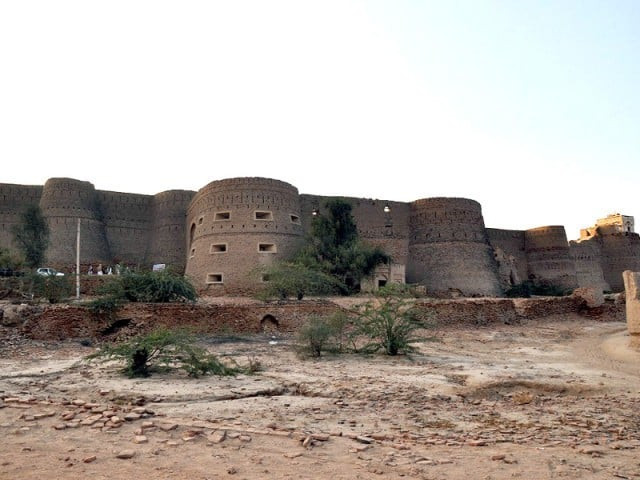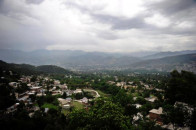Intangible heritage: ‘Preserve Cholistani music, dances’
28 govt officials to be trained in identification, restoration of threatened cultural practices at four-day workshop.

Intangible heritage: ‘Preserve Cholistani music, dances’
Cholistan’s folk dance and music and colourful handicrafts were identified in a workshop that started on Tuesday as some of the cultural activities and traditions that are losing popularity.
The four-day workshop has been organised by the United Nations Educational, Scientific and Cultural Organisation (UNESCO) to train government officials in data collection and identification and restoration of threatened cultural activities, UNESCO programme officer Jawad Aziz told The Express Tribune.
Aziz said government officials would also be trained in holding community awareness programmes for preservation of cultural activities.
He said the workshop was arranged in accordance with the UN convention on preservation and safeguarding of intangible cultural heritage.
The convention adopted in 2003 provides a framework for protection and safeguarding of intangible cultural heritage. It specifies indigenous festivals, languages, handicrafts, cottage industries and music as such. Pakistan ratified the convention in 2005 but has yet to start work on identification and restoration of threatened heritage.
As many as 28 officials from the Culture Departments of the four provinces and arts councils and museums across the country are attending the workshop.
Bahawalpur Museum director Hussain Ahmad Madni, one of the participants, said Cholistani handicrafts were threatened as some of the raw materials used in their production were becoming rare.
Azad Jammu and Kashmir Culture Secretary Inayat Ullah Chaudhary invited the participants to Muzaffarbad to observe threatened cultural activities of the region.
Speaking to the Tribune, he mentioned gatka (traditional martial art) as one of these. He said financial support could help preserve cottage industries like shawl weaving and walnut-wood furniture production.
Punjab Art Council Assistant Director Mughees bin Aziz said he had raised the issue of a ban on Basant during the workshop. He said the festival had been a popular event in the Punjab, particularly Lahore. He suggested that a strategy be formulated to revive the festival.
On the first day the participants were asked to attend a Lok Virsa festival at Jallo Mor and interview the artisans displaying their work about the diminishing cultural activities.
Speaking at the workshop, Sajida Haider Vandal, a member of the Trust for History and Architecture of Punjab-Pakistan, said she hoped the participants would devise a framework for threatened cultural heritage by the end of the workshop.
Dr Kozue Kay Nagata, the UNESCO country director for Pakistan, said ‘intangible cultural heritage’ was a recent coinage but referred to centuries-old activities and practices.
She said these practices had been critical to formation of identity and transmission of history from generation to generation.
Published In The Express Tribune, June 13th, 2012.



















COMMENTS
Comments are moderated and generally will be posted if they are on-topic and not abusive.
For more information, please see our Comments FAQ